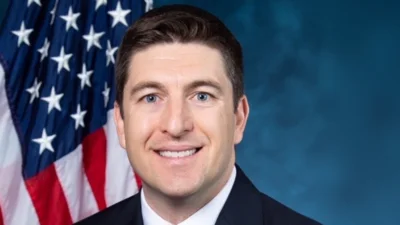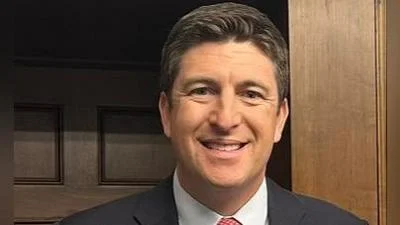Clinton Anderson, Wisconsin State Representative of 45th District | Facebook
Clinton Anderson, Wisconsin State Representative of 45th District | Facebook
According to the Wisconsin State Legislature's official website, the bill was described as follows: "eligibility for Family Care for individuals who are deaf-blind. (FE)".
The following is our breakdown, based on the actual bill text, and may include interpretation to clarify its provisions.
In essence, this bill expands eligibility for the Family Care program, which offers community-based long-term care services, to include individuals who are deaf-blind. Currently, to qualify for Family Care, a person must be at least 18 years old and meet specific criteria related to physical or developmental disabilities or being a frail elder, as well as meeting functional and financial eligibility standards. The bill amends the existing statute by explicitly stating that an individual is functionally eligible for Family Care if they are deaf-blind, as defined under the federal statute 29 USC 1905. The bill does not specify an effective date.
The bill was co-authored by Senator Mark Spreitzer (Democrat-15th District), Representative Margaret Arney (Democrat-18th District), Representative Mike Bare (Democrat-80th District), Representative Jill Billings (Democrat-95th District), and Representative Brienne Brown (Democrat-43rd District). It was co-sponsored by Senator Tim Carpenter (Democrat-3rd District), Senator Kristin Dassler-Alfheim (Democrat-18th District), and Senator Dora E. Drake (Democrat-4th District), along with 22 other co-sponsors.
Clinton M. Anderson has co-authored or authored another 41 bills since the beginning of the 2025 session, with none of them being enacted.
Anderson graduated from the University of Wisconsin-Rock County in 2016 with an AS and again in 2018 from the University of Wisconsin-Whitewater with a BS.
Anderson, a Democrat, was elected to the Wisconsin State Assembly in 2023 to represent the state's 45th Assembly district, replacing previous state representative Mark Spreitzer.
In Wisconsin, the legislative process starts when a senator, constituent, group, or agency proposes an idea for a bill. After drafting, the bill is introduced, numbered, and referred to a committee for review and public input. If approved, it moves through three readings and votes in both the Senate and Assembly. Once both chambers pass the same version, the bill goes to the governor, who can sign it, veto it, or let it become law without a signature. Only a small share of bills introduced each session ultimately become law. You can learn more about the Wisconsin legislative process here.
| Bill Number | Date Introduced | Short Description |
|---|---|---|
| AB272 | 05/19/2025 | Eligibility for Family Care for individuals who are deaf-blind. (FE) |
| AB205 | 04/23/2025 | Serving maple syrup in a public eating place |
| AB142 | 03/17/2025 | Algorithmic software for residential housing, and providing a penalty |





 Alerts Sign-up
Alerts Sign-up